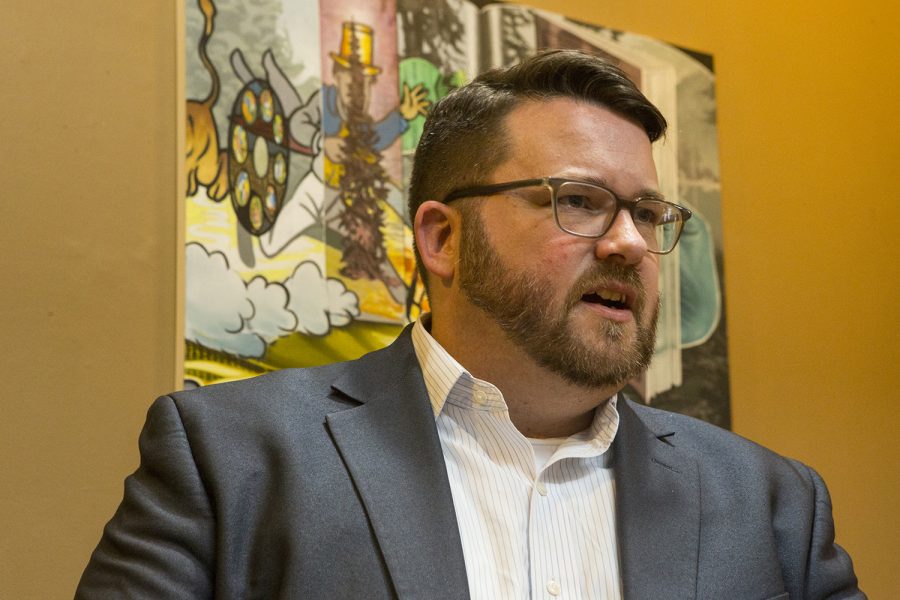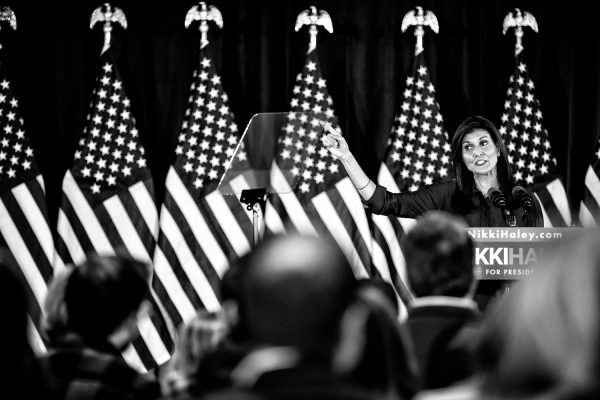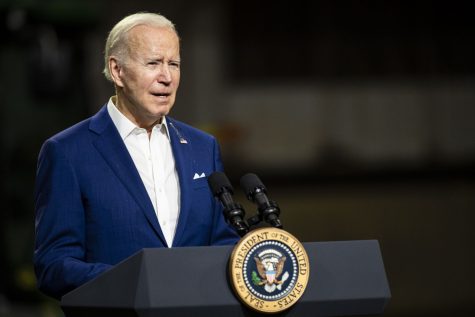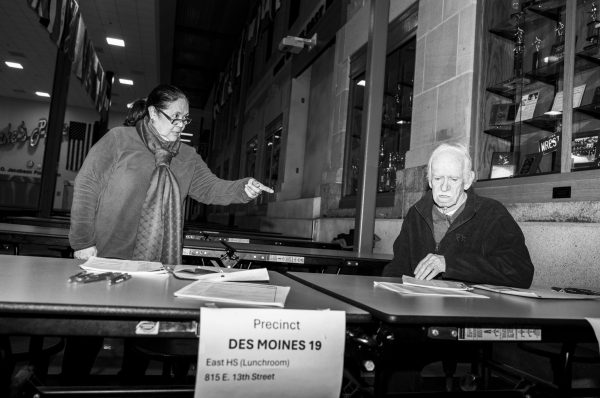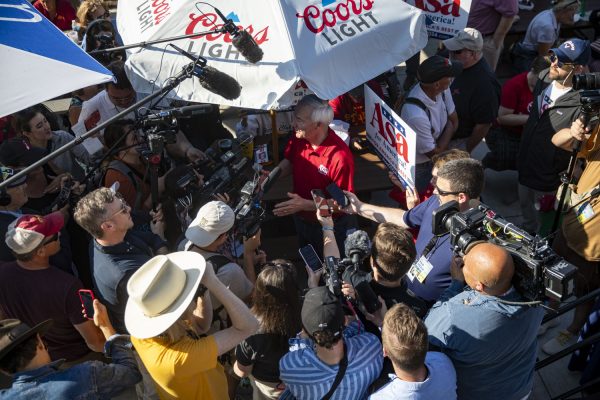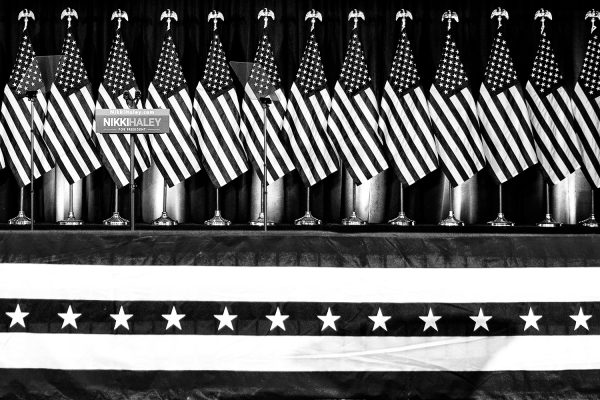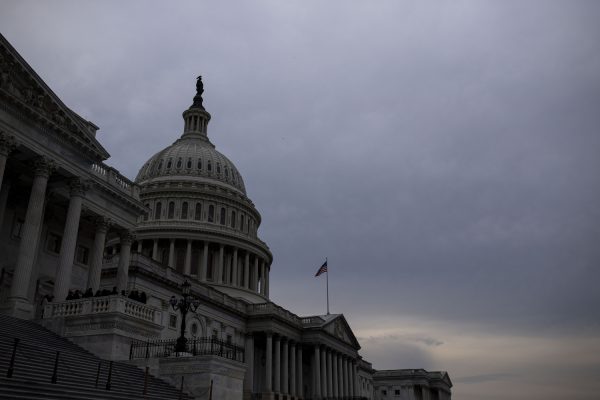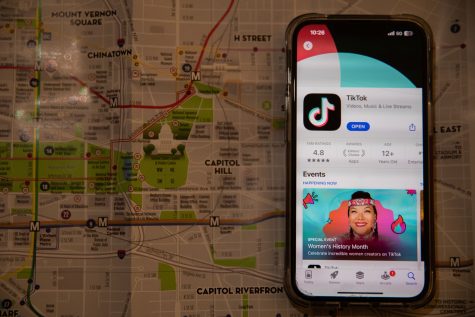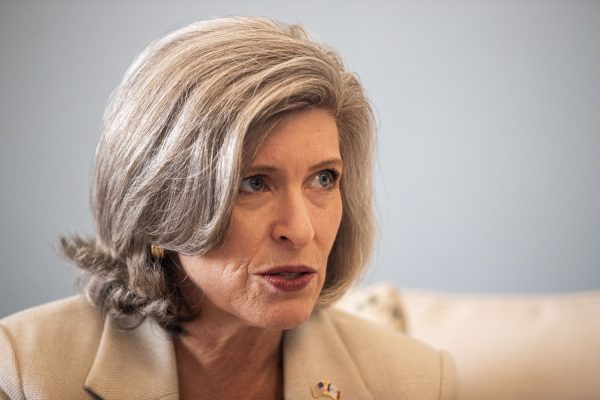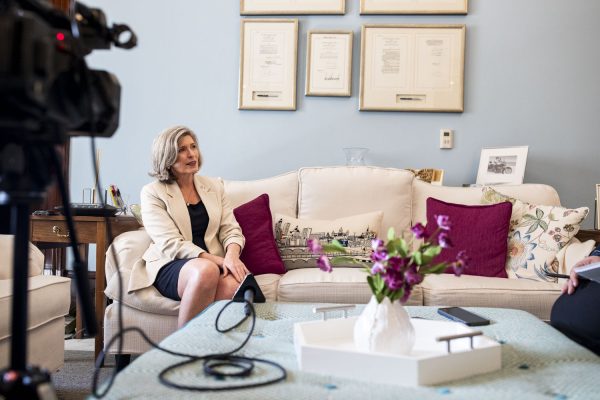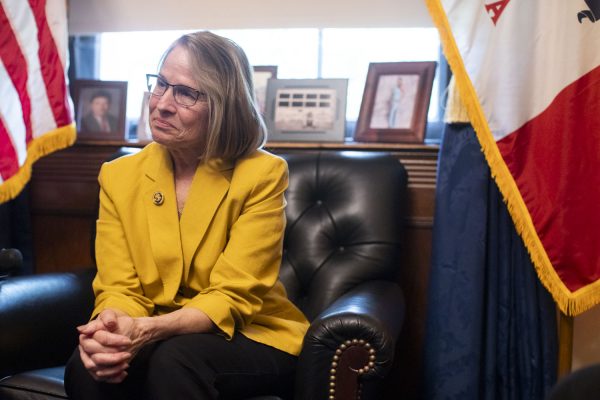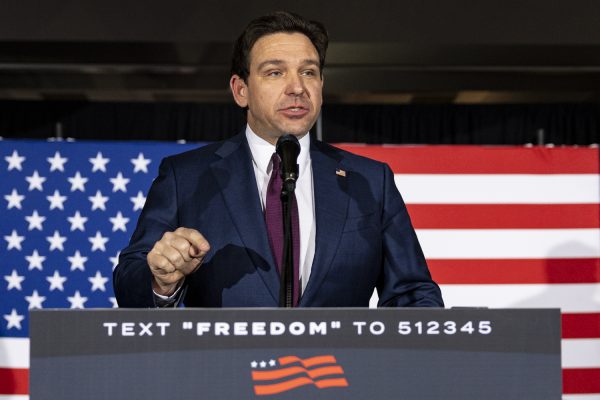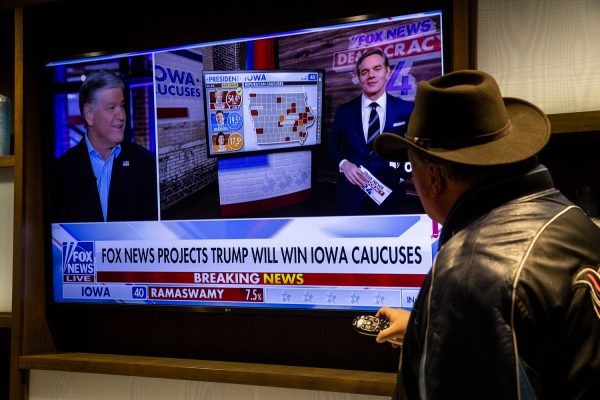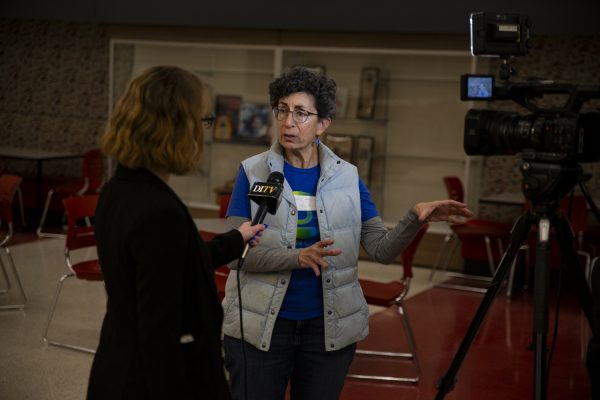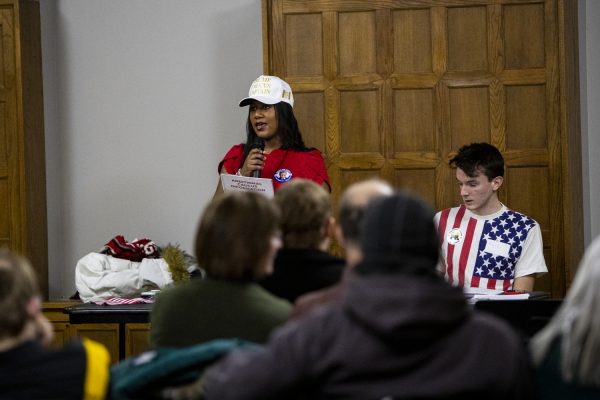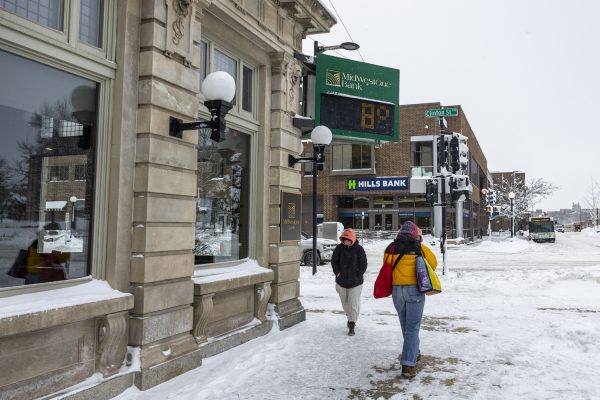Iowa Democratic Party Chair: Early training will be key to implementing Iowa caucuses
In an interview with The Daily Iowan May 3, Iowa Democratic Party Chair Troy Price said the party will need to mobilize early to pull off smooth caucuses because high turnout is expected and new caucus rules are coming.
Iowa Democratic Party Chair Troy Price discusses the Iowa caucuses in an interview for The Daily Iowan at Prairie Lights on Friday, May 5, 2019. (Jenna Galligan)
Iowa Democratic Party Chair Troy Price plans to put a lot of miles on his car ahead of the 2020 Democratic presidential caucuses.
“During the last week of the last election cycle, I put 4,000 miles on my car,” Price said.
With the number of national Democrats pursuing the party nomination for president blowing past 20 last week and a new “virtual” caucusing option ahead of Iowa’s first-in-the nation February caucuses, Price said, the party is mobilizing early in order to accommodate what he expects will be a high turnout and prevent confusion with new elements to Iowa’s caucusing process.
“Our goal is to have everyone or as many people as possible walking in the doors on caucus night, or who participate in the virtual caucus, who understand what to expect,” Price said.
The changes include:
- Six virtual caucus sessions in the days leading up to Feb. 3.
- Caucus-goers will fill out a first-expression-of preference and changes in support will be documented
- Locking delegate results from caucus night until the national nominating convention
- Only supporters of candidates that don’t meet the 15 percent threshold can realign with another candidate.
While Price said officials didn’t yet have specific trainings planned since the final delegate-selection plan is technically still undergoing the review process, the party is hiring and organizing earlier than normal.
The Iowa Democratic Party hired district organizers in March, earlier than in recent years, and local Democratic organizers have picked precinct locations and are recruiting people to fill the 1,679 caucus chairs.
Related: Race for young supporters is on ahead of 2020
“We have to hire all of them between now and Feb. 1,” Price said.
He said once organizers are trained on the new caucus process, party officials also want to implement training sessions across the state beginning in June.
While training locations aren’t set in stone, Price said, there will likely be trainings in areas such as college campuses, where first-time voters make up a large swath of the population. Unlike the nonpresidential-year primaries, which are held in June in Iowa, college students will be on campus for the Feb. 3 caucuses.
Price said the party was also looking at how to send out information digitally, noting that this year is the first in nearly a decade the Democratic Party of Iowa has had a full-time digital director on staff.
Because the changed Democratic caucusing rules will be new to everyone, Price said, he foresees some challenges getting the old guard to be active in learning about the new process.
“Leaders within the process of people who say, well, we’ve been doing this this way since 1972,” Price said. “And I’ve been a caucus chair since 1972. And I’m not going to do anything different.”
But with the new changes and challenges of a close result in the 2016 caucuses, Price said, many party organizers are paying attention.
Changes may alleviate some disgruntlement from 2016
He said in addition to education — he believed the change of documenting a caucus-goer’s first expression of preference and preventing caucus-goers from realigning if they pledge for a candidate that meets the 15 percent threshold if implemented properly will help assuage 2016 concerns about fairness in the Iowa caucuses.
“We’ve done some things designed to improve — hopefully, speed the process along, make the registration process easier,” Price said.
Inaccuracies combined with a surge of first-time caucus-goers in 2016 contributed to what the Des Moines Register Editorial Board called a “debacle, period.”
When will virtual caucuses be set in stone?
Price said the final stamp of approval for the new plan could come as soon as July, but the plan will have to be implemented beginning in early September. At this point in the process, changes await approval or revisions from the Democratic National Committee.
The State Central Committee, which is made of party members from each congressional district in Iowa and others, approved the plan unanimously April 6.
After a 30-day comment period that began in February, Price said, the most discussed part of the plan was the allocation of delegates the virtual caucus-goers would get. In the plan, those who don’t attend in person to caucus will account for 10 percent of the delegates sent to the national convention from Iowa.
“Some people thought it [10 percent] was too high, but some people thought it was too low,” Price said. “Some people didn’t like the virtual caucus, but that was a very small minority.”
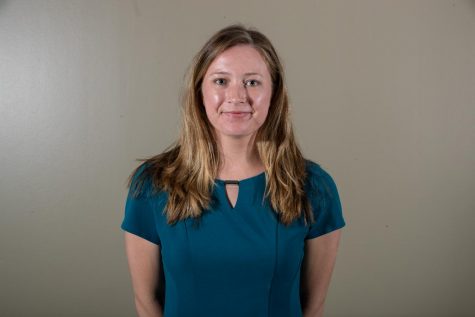
(she/her/hers)
Email: [email protected]
Twitter: @K_5mydearwatson
Sarah Watson is the executive editor at The Daily Iowan. She's in her...
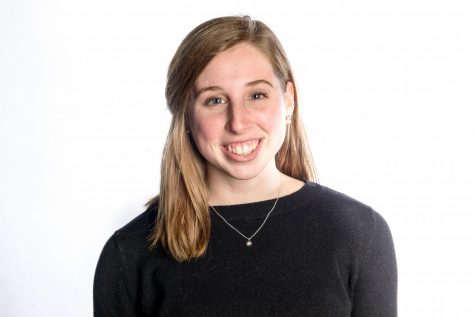
(she/her/hers)
Jenna Galligan is the Films Editor and Documentary Director at The Daily Iowan. She is a senior at the University of Iowa majoring in...



